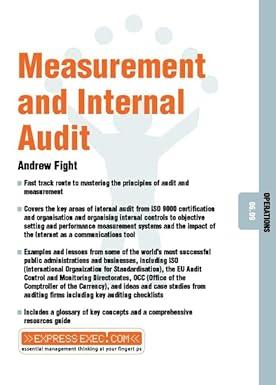Answered step by step
Verified Expert Solution
Question
1 Approved Answer
Gary and Gerda Gray purchased a home for $125,000 on September 15, 2016. On October 7, 2017 they were divorced, and as part of the
| Gary and Gerda Gray purchased a home for $125,000 on September 15, 2016. On October 7, 2017 they were divorced, and as part of the divorce agreement, the home was transferred to Gerda who sold the home on October 18, 2018 for $350,000. How much can Gerda exclude? $350,000 $250,000 $0 $225,000 None of the above. |
| Which of the following statements is false? A taxpayer's home is a capital asset. A loss on the sale of a residence is a non-deductible personal living expense. The current provision of IRC 121 that prevents $250,000 ($500,000 for married taxpayers filing jointly) of gain from being taxed is a mere postponement (deferral) of taxable gain. All of the above is true. |
| Which of the following is NOT a tax policy reason for excluding gains on the sale of residences and allowing itemized deductions for real estate taxes and home mortgage interest. Home ownership is part of "the American Dream" and is considered worth encouraging and sacred.Owning a home is the only "tax-shelter" the average wage-earner has under the current tax law. Home ownership promotes simplicity in the tax code. Promoting home ownership in the tax code supports real estate values & the real estate industry which is a huge and vital part of the American economy. All of the above are sound policy reasons for giving tax breaks to homeowners. |
| Which of the following statements is false? The provisions of IRC 121 for sale of personal residences are mandatory unless a specific election is made not to have IRC 121 apply. A taxpayer can make an election to report and pay tax on the sale of a residence if the taxpayer so chooses. A married couple must file a joint tax return to exclude $500,000 of gain on the sale of their personal residence. All of the above are true. |
| Which of the following statements is/are true? A taxpayer lived and used a property as a personal residence for one year before being re- located by his employer. Such taxpayer may not exclude any gain from the sale of the residence because he did not own the home long enough to satisfy the ownership and use requirements. A taxpayer may exclude gain from the sale of a residence even if the same taxpayer excluded gain from the sale of another residence within two years preceding the date of the current home sale provided the taxpayer meets the ownership and use requirements of IRC 121.. Both A & B are true. Both A & B are false. |
Step by Step Solution
There are 3 Steps involved in it
Step: 1

Get Instant Access to Expert-Tailored Solutions
See step-by-step solutions with expert insights and AI powered tools for academic success
Step: 2

Step: 3

Ace Your Homework with AI
Get the answers you need in no time with our AI-driven, step-by-step assistance
Get Started


